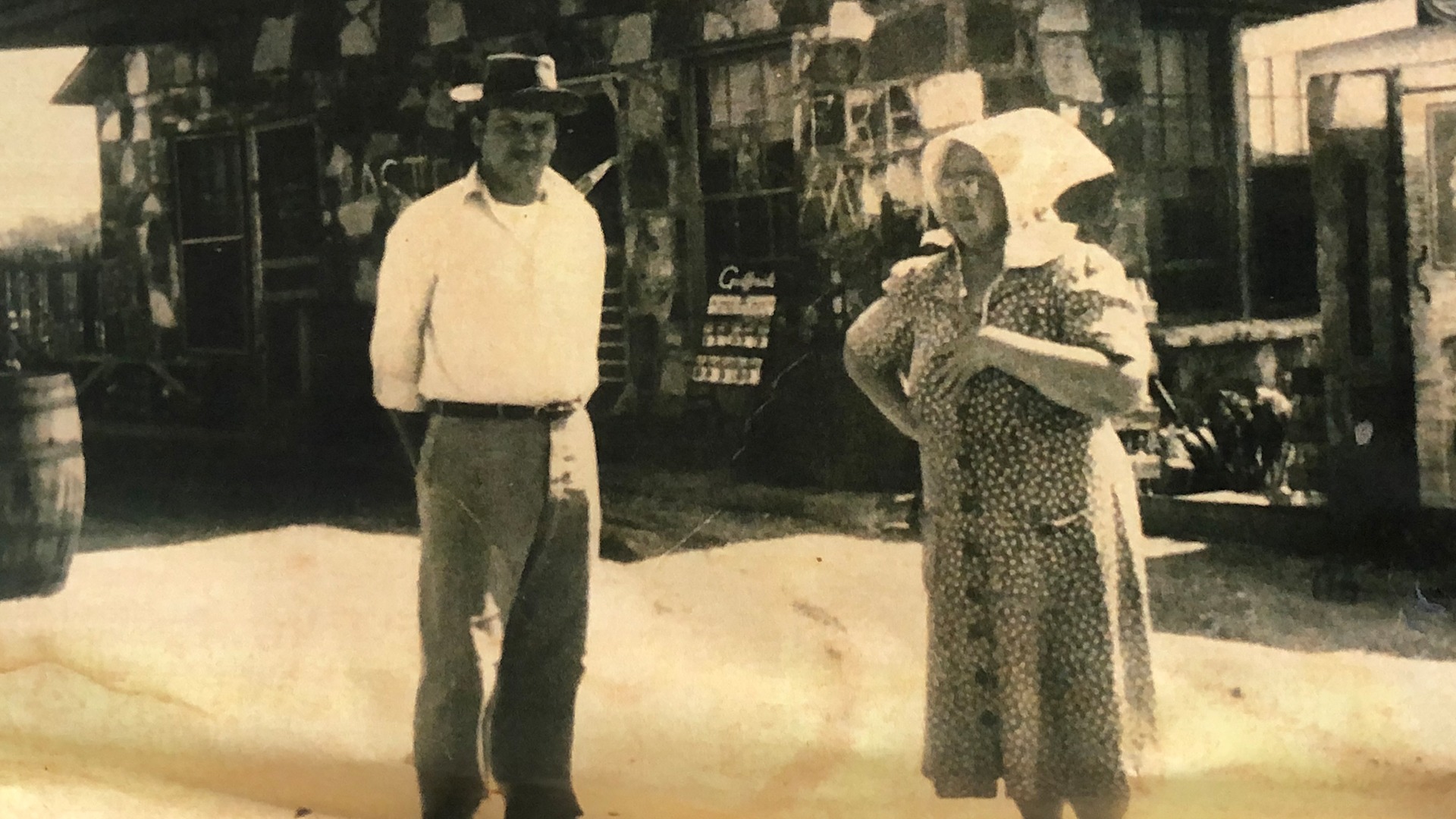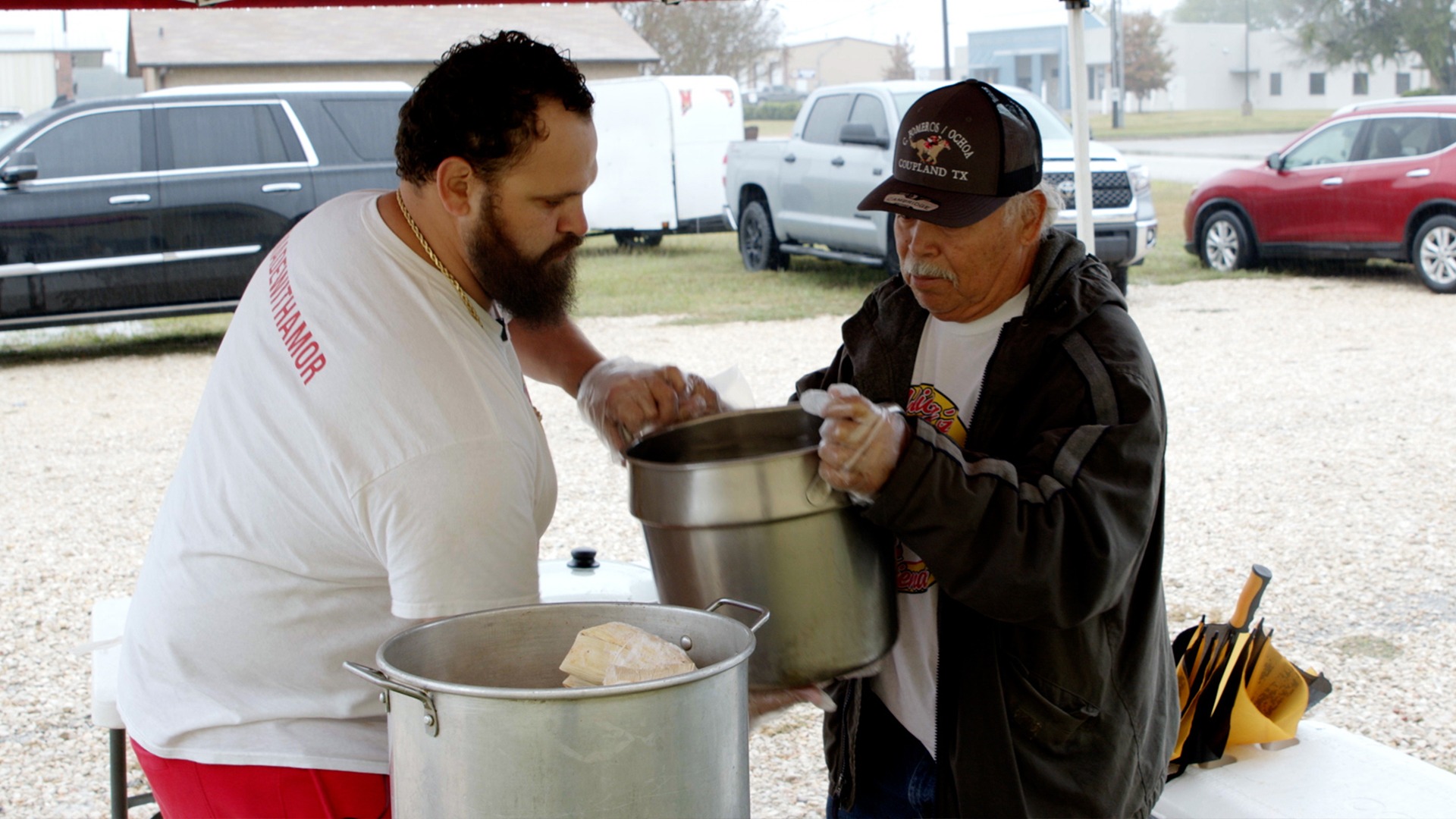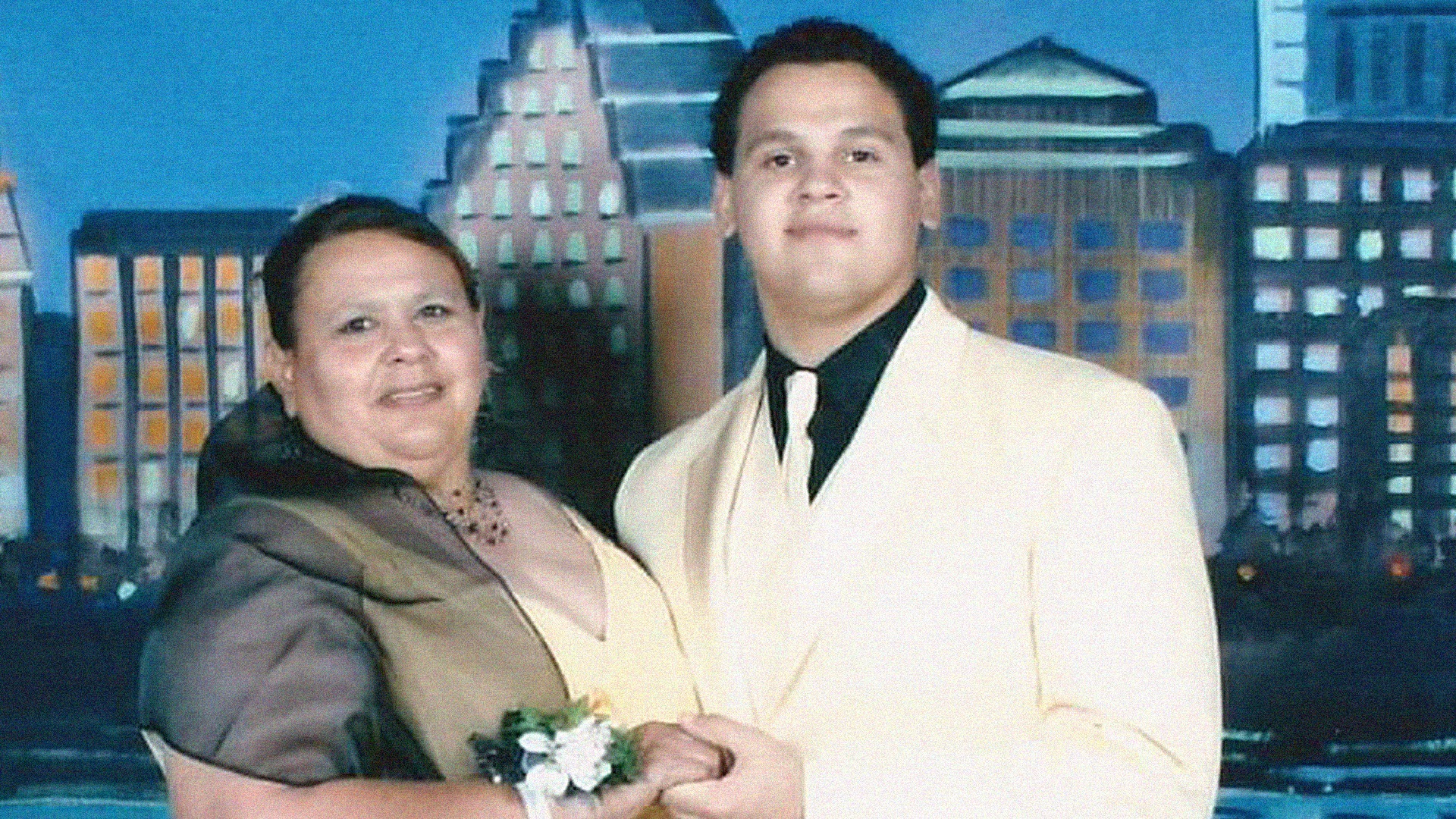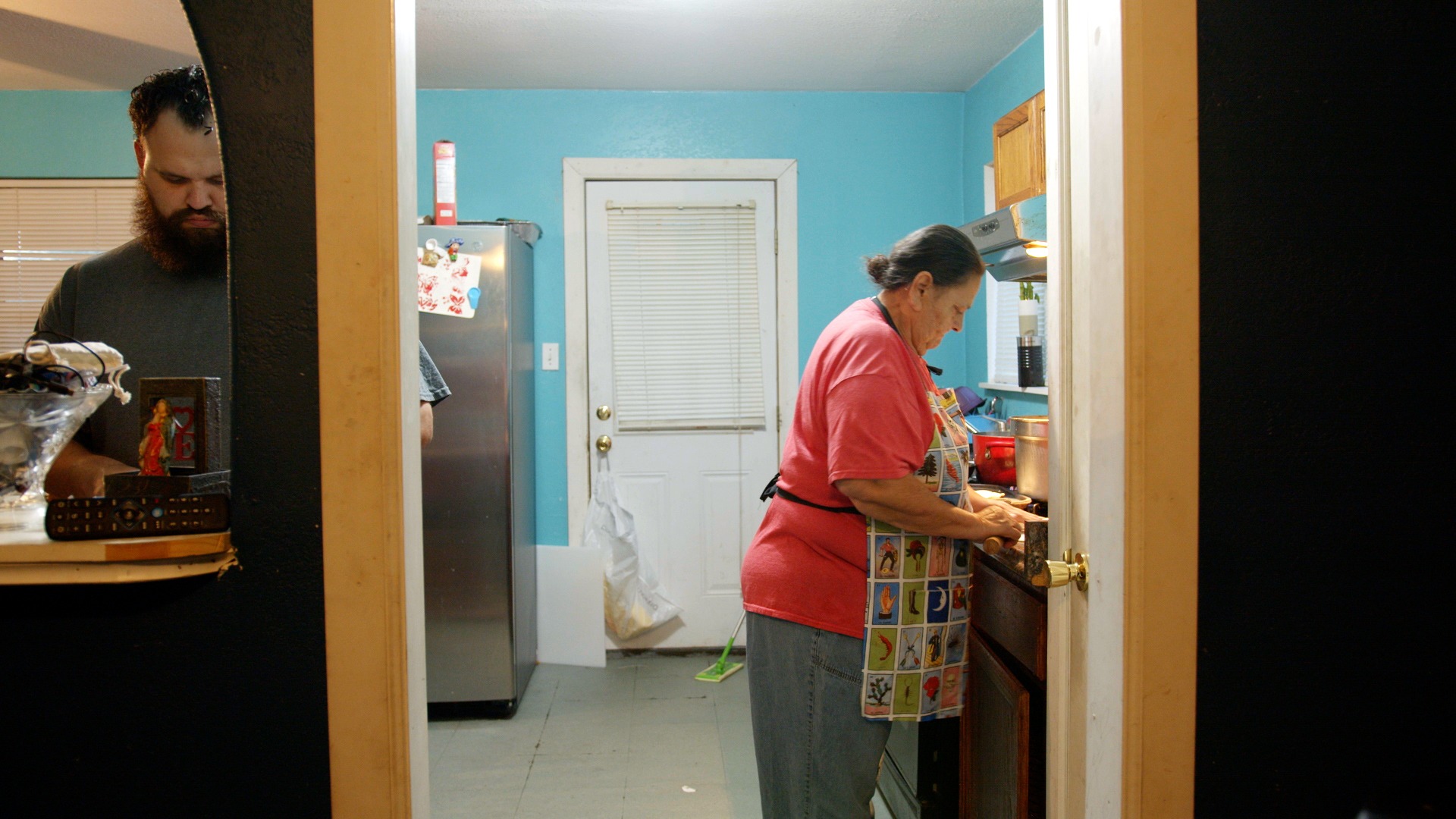Unwrapping A Legacy
It's a cold and rainy Saturday in Lockhart, Texas. Just outside of the Lockhart Evening Lions Club Holiday Bazaar, Max Varela and his father, Leobardo Varela Martinez, pull a batch of tamales out of a boiling pot of water. Grease oozes out from the corn husk wrappers as the tamales are transferred to a sheet of aluminum foil.
“I feel like a tamale has to be juicy. I always joke around and say, ‘If we don't see the orange grease under the tamal, it's not a real tamal,’” Varela says.
Varela and his parents make and sell tamales out of their home, at local events and a food truck, called Alicia’s Tacoriendo. But at year’s end, they’re bombarded with extra orders. That’s because every holiday season, it's a tradition for many Latinx folks to celebrate with at least a dozen of their favorite tamales.
“They want to have those memories, and they want to maybe remember their ancestors that one time made them,” Varela says. “Traditions, they mean a lot to me. It reminds me of my roots, of where I come from.”
The Varela’s tradition of tamale-making began with Varela’s great-grandfather, Francisco Javier Vallejo. He immigrated from Monterrey, Mexico to Texas in 1929. The family raised hogs and out of necessity utilized the entire animal for food.
Varela’s grandfather, Jose Vallejo Sr. (left) and great-grandmother, Agustina Calderon Vallejo (right), owned a general store in Creedmoor.
“I think they just had the head left over and they're like, ‘Hey, let's see what we can do with it,’” he says. “They boiled it and they ground it up, and they made some pretty good tamales.”
The Vallejo family recipe of using hog heads as filling was passed down to Varela’s grandfather, Jose Vallejo Sr. at tamaladas. Making tamales can be labor intensive and time consuming, so friends and family members gather at tamaladas to help make the process easier.
“Tamaladas show how food brings people together,” Adán Medrano, chef, filmmaker and author of “Truly Texas Mexican: A Native Culinary Heritage In Recipes,” says
Tamaladas often happen during the winter season, when Mexican and Mexican American families come together for holidays like Dia de los Muertos and Christmas. According to Medrano, making tamales gives families the opportunity to honor loved ones.
Max Varela (left) and his father, Leobardo Varela Martinez (right), pour water into a pot filled with tamales at the Lockhart Evening Lions Club Holiday Bazaar on November 27, 2021. Varela heats up tamales in boiling water on site and sells them ready to eat.
“The tamales, when you make them, you are conjuring your great grandfather, your great grandmother,” he says. “Those people that have passed away are still with us. They're still with us because they've gifted us with these things.”
Vallejo eventually gifted his daughter, Alicia Isabel Vallejo his touch for making tamales. She grew up in the kitchen cooking alongside her father and helped him sell his tamales at weekend jamaicas. At 16, Alicia Vallejo dropped out of high school to work full-time. But on weekends, she continued to make and sell tamales as a side business just like her father.
“I always remember [my dad] said, ‘That's nice when you go out there and talk to people and then you see some of the old people come back the next year. They must have liked my food or something.’ That’s why I did it,” Vallejo says. “I liked it because I like to talk. I like to run my mouth.”
Max Varela (right) and his mother, Alicia Isabel Vallejo (left), attended Varela’s senior prom in 2007. Vallejo dropped out of school at the age of 16 to work as a cook and sell tamales with her father on weekends. She didn’t get to go to her own prom, so her son invited her to his.
Vallejo continued selling tamales and when her son, Varela, was old enough, he got involved, too, making deliveries for his mother on weekends. He never planned on permanently joining the family business, though. Things changed after a flood destroyed his family’s home.
“My family needed me more than anything. I needed to be here with them. I needed to help them rebuild,” Varela says.
Rebuilding pushed Varela to think about what he could do to take his family’s side business to the next level. He signed up for a course at the Economic Growth Business Incubator, pooled together funds with his parents to buy a food truck and began marketing the business as Alicia’s Tacoriendo.
“She could make very good food. But before this, she never really had any exposure. Definitely never had a logo or brand name or anything like that, that we could be proud of,” he says.
Max Varela (left) blends bread crumbs for mole while his mother, Alicia Isabel Vallejo (right), rolls tortillas for family dinner at their home on December 6, 2021. Varela says he hopes to learn her recipes, especially her tamales to continue their family legacy.
Varela now sees the importance of keeping the family business going. He enjoys traveling across Central Texas, setting up shop at festivals selling tamales alongside his parents.
“I feel like it's very vital that this continues to be passed on throughout our family because it's our legacy,” Varela says. “It's made from the struggle, from passion, from pain, from all of that.”
For now, the business remains a side hustle, but Varela hopes to one day see it expand.
“I want this to become a success. More so for my family, more so for my parents, my mom, my dad. They've worked tirelessly their whole lives to get me to this point.” Varela says. “I feel like I owe them everything.”
Community journalism doesn’t happen without community support.
Got story ideas, advice on how we can improve our reporting or just want to know more about what we do? Reach out to us at news@klru.org.
And if you value this type of reporting, then please consider making a donation to Austin PBS. Your gift makes the quality journalism done by the Decibel team possible. Thank you for your contribution.
More in Culture:
See all Culture posts









Contact Us
Email us at news@klru.org